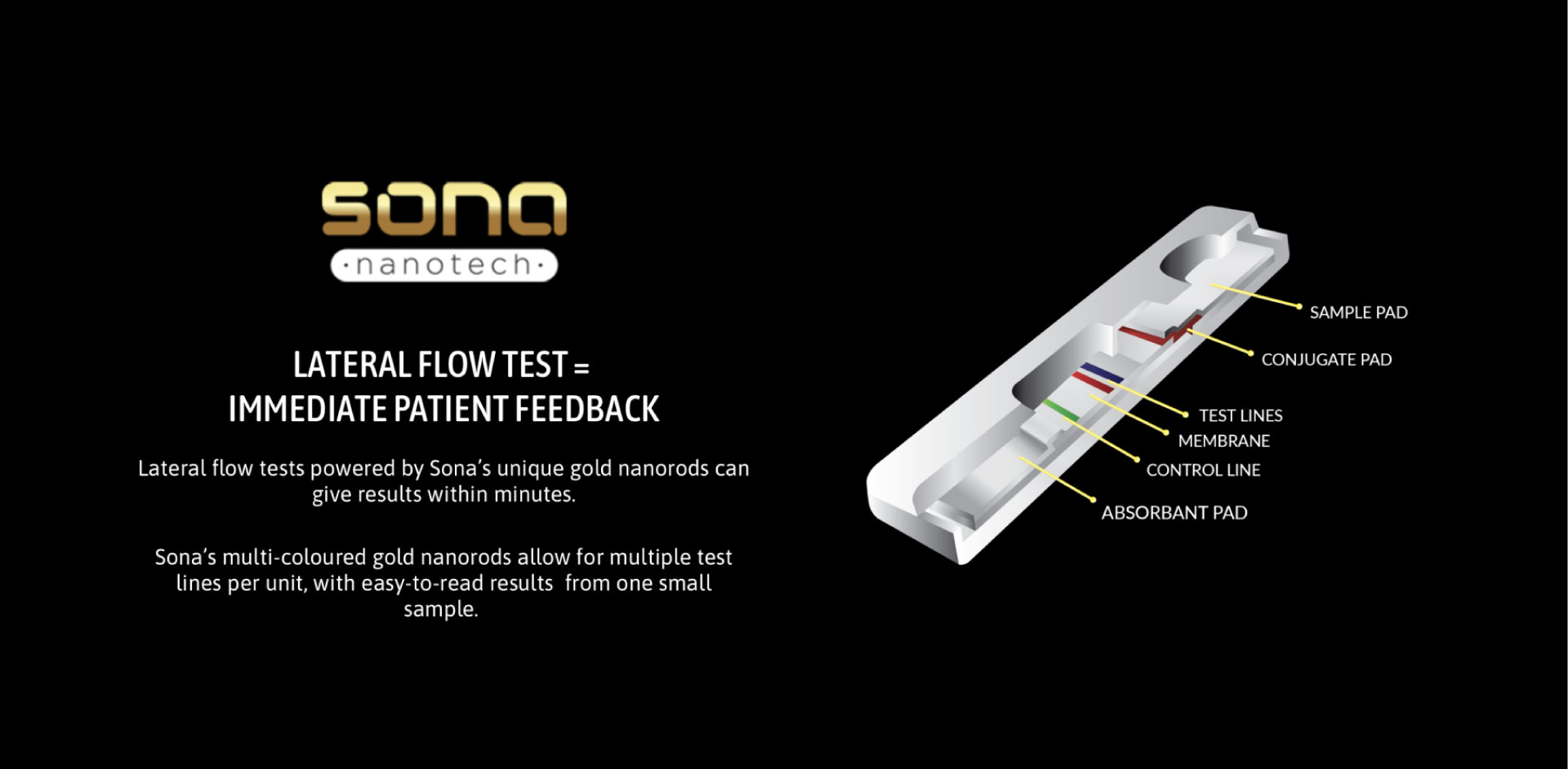
April 22, 2020
According to the article, “Antibody tests — also known as serology tests — aren’t meant to diagnose active coronavirus infections. Rather, they check for proteins in the immune system, known as antibodies, through a blood sample. Their presence means a person was exposed to the virus and developed antibodies against it, which may mean that person has at least some immunity — although experts are not sure how strong the immunity may be or even how long it will last.”
The presence of immunoglobulin M (IgM) antibodies indicate recent exposure to COVID-19, while the presence of immunoglobulin G (IgG) antibodies indicate later-stage infection. The rapid response serological tests typically use a technique called enzyme-linked immunological assay (ELISA), which detects the presence of these antibodies to the virus in the blood.
A serological test is going to tell you that you’ve had antibodies in your body that have attacked an infection or a virus, but they’re not specific to COVID-19. Running serological tests can be incredibly fast. You can potentially get results in a matter of seconds but the problem with these tests is that many of these products in the market are simply not accurate enough and don’t address asymptomatic carriers.
According to virologist Davie Smith in a recent video from The Guardian, “We don’t have the best testing possible. We still don’t have them as specific or sensitive, meaning that they can detect the antibody when it’s there or not detect it and say truly that it’s negative and it’s not there. So in the population, overall, there might be lots of people that have this infection that we just don’t know about. And, right now, we are sort of blind.”
The other problem with serological tests is that they produce positive results only once the body has had a chance to produce these antibodies, usually after symptoms show up.
A good example is the serological rapid response test being sold by BTNX Inc., as referenced in this recent CBC article:
“While the BTNX Inc test can’t detect the virus in its early stages — as nasal swabs can — the rapid blood tests are effective at diagnosing people about five to seven days after symptoms show up, once the body has had a chance to produce antibodies.”
But isn’t that too late to stop the spread of infection?
The world needs a rapid response test that can detect the virus at a much earlier stage of the infection or in carriers that are asymptomatic while being specific to the COVID19 virus, not just the antibodies. A test that gives positive results much earlier in the life cycle of the virus are the earlier diagnostics needed to help battle this pandemic.
We see a lot of countries are looking at serological tests, because the reality is, they’ve got few, if any other options available.
But this may change very quickly.
Sona Nanotechnologies Inc., (SONA:CA, SNANF) together with GE Health Sciences has a working prototype of a Gold Nanorod Lateral Flow Assay (LFA) rapid response test for early detection of the specific COVID-19 virus.
It’s a quick-response lateral flow assay, and it says it expects its test to produce results in five to 15 minutes, costs below $30 and can be administered by untrained individuals (this is key). Lateral flow assays have a wide array of applications and can test a variety of samples like urine, blood, saliva, sweat, serum, and other fluids.
Lateral flow tests are designed to identify the presence of a specific biological marker. Pregnancy tests, for example, look for the hormone hCG produced by pregnant people while HIV lateral flow assays detect the virus directly. However, Sona owns a proprietary gold nanorod technology which can be used in numerous lateral flow applications. In lateral flow tests, particles like Sona’s nanorods are used to bind to biological materials and carry them along a test strip, producing a positive or negative result.
This isn’t a PCR test which requires a swab, a waiting period and specialist’s analysis to yield a result (which can take days depending on availability and logistics). Many antibody tests rely on lateral flow, but it isn’t one of those either, as Sona’s test will directly detect the Covid-19 virus.
The Sona prototype, which has already had positive results on the live virus, is looking for the COVID-19, and will give a positive result if it interacts with COVID-19. It’s not measuring a marker like an antibody, it’s measuring the specific COVID-19 virus. And that is what the world needs.
The SONA test could be ideal for use in a variety of scenarios, such as:
- An in-home test and monitoring
- To identify if patients require further testing or treatment in a clinical setting
- To verify if patients are ready for release from quarantine
- To screen individuals prior to entering closed public venues such as cruise ships, airplanes, borders, sporting venues, or warehouses with large workforces.
Sona Nanotech Inc. has been awarded a $4.1-million grant from NGen, Canada’s advanced manufacturing supercluster, to develop and commercialize its COVID-19 rapid-response antigen test. This non-repayable grant will be used to accelerate the development of a prototype and scale manufacturing capabilities, with a view to deploying this virus-detecting, point-of-care test with Canadian medical authorities as soon as possible.
Furthermore, according to the office of the Prime Minister of Canada, Sona Nanotech, together with a consortium of laboratories, universities, and hospitals, will use nanotechnology to develop point-of-care test kits that will improve the accuracy of virus detection and provide results in 5-10 minutes.
If successful, the project will yield 20,000 test kits available per week in Canada alone, with the potential to scale-up to 1 million test kits per week, while keeping costs within range of other comparable infectious-disease screening protocols.
Additionally, the Company has announced pre orders from various countries for delivery of over 3M testing kits upon validation. Discounting their pricing guidance of less than $30USD per test to $20USD, that’s over $60MUSD in orders the Company will be looking to fulfill once optimization on the test kit has been completed.
While the need for both types of tests (serological and PCR) exists to gather as much scientific data as possible, the world is anxiously waiting for a much more timely and accurate rapid response test that could significantly reduce the spread of COVID-19.
Sona Nanotech, could be the answer.
Arlen Hansen
President
604 684 6730 | 1 866 684 6730
kin communications
# 100 – 736 Granville Street
Vancouver, BC V6Z 1G3
Please read this disclaimer in its entirety before reviewing any opinions, views or information expressed by Kin Communications Inc. (“Kin”). If you do not agree to all of the disclaimer, do not access any materials or information presented by Kin. By accessing these materials, and whether or not you have actually read this disclaimer, you are deemed to have accepted it.
The opinions or views expressed on social media platforms maintained by Kin Communications Inc. (“Kin”) represent the thoughts and opinions of individual users. The opinions and views expressed on these platforms do not in any way reflect the views of the site they are posted on, other sites affiliated with those sites, or the Kin staff involved with maintaining the site. Kin does not control or guarantee the accuracy, relevance, timelines or completeness of opinions, views and information presented on these sites. While Kin makes reasonable efforts to verify the accuracy of information presented, readers are strongly encouraged to conduct their own independent due diligence.
No opinions, views or information presented should be construed as a solicitation to buy or sell the securities of any third-party mentioned. Kin, and its principals, are not registered broker-dealers or financial advisors. Before making an investment in any securities, you should consult with your financial advisor and a registered broker-dealer. Never make investment decisions based solely on opinions, views or information presented on these sites. In certain cases, Kin is paid by third-parties mentioned on these sites to disclose information and opinions. In addition, Kin and its principals may own securities of those parties mentioned. As a result, Kin and its principals would have a direct financial interest in the parties mentioned. Therefore, any information provided should not be construed as independent financial analysis or recommendations but as advertisement.
Certain information presented may contain or be considered forward-looking statements. Such statements involve known and unknown risks, uncertainties and other factors which may cause actual results or events to differ materially from those anticipated in these statements. There can be no assurance that any such statements will prove to be accurate, and readers should not place undue reliance on such information. Kin does not undertake any obligations to update information presented, or to ensure that such information remains current and accurate.

